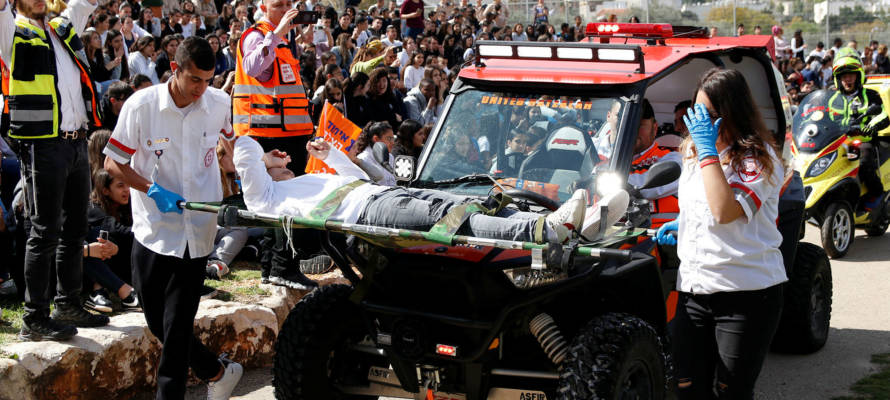The Israel Trauma Coalition has recently been granted the status of a Special Advisor to the United Nations’ Economic and Social Council (ECOSOC), the highest status a non-profit can achieve on the global stage.
By TPS
The status of Special Advisor was recently bestowed by the United Nations upon the Israel Trauma Coalition (ITC), giving the organization special recognition for its work in Israel and around the world. An 18-month vetting process was conducted prior to receiving this status.
ECOSOC is the United Nations’ central platform promoting sustainable development.
Created in 2001, the ITC is a non-profit organization partnering with over 40 organizations to create a continuum of care in the trauma field, response, and preparedness.
ITC has worked in Sri Lanka, Haiti, India, France, Japan, Nepal, the Philippines, Chechnya, Jordan, and the US after Hurricane Katrina, the 9/11 terror attacks and following the Boston marathon attack.
The ITC harnesses Israel’s vast knowledge, expertise and experience in the field, banding together Israel’s leading NGO’s and government organizations.
Taliya Levanon, Director-General of the ITC, stated that she is “excited about the honor we have received from the UN. This will allow us to share our knowledge and experience in international conferences organized by the UN on issues related to our field of activity.”
“For me, this recognition is an acknowledgment of the incredible activity that our team is doing throughout the year in partnership with the organizations, with the objective of promoting resilience after terror or natural disasters,” she added.
The new status enables the ITC to access all inter-governmental activities related to social and economic issues at the UN and was created to empower civil society organizations to take an active part in the UN’s work.
Over 15 Israeli organizations have been given consultative status at ECOSOC. This status gives them the ability to influence the formulation of UN policies and the decisions taken in their institutions.
